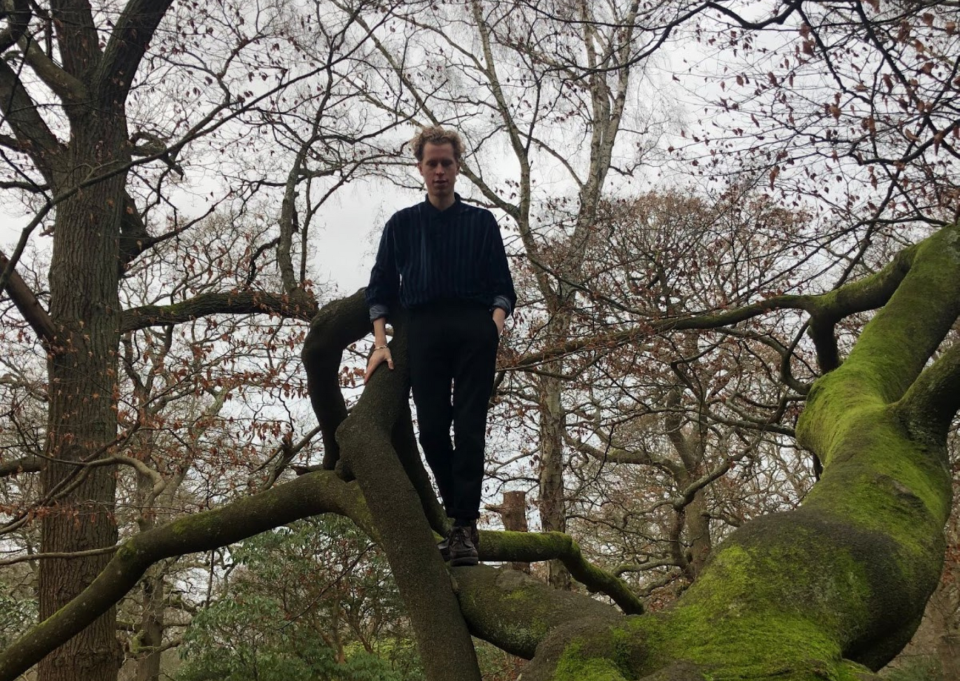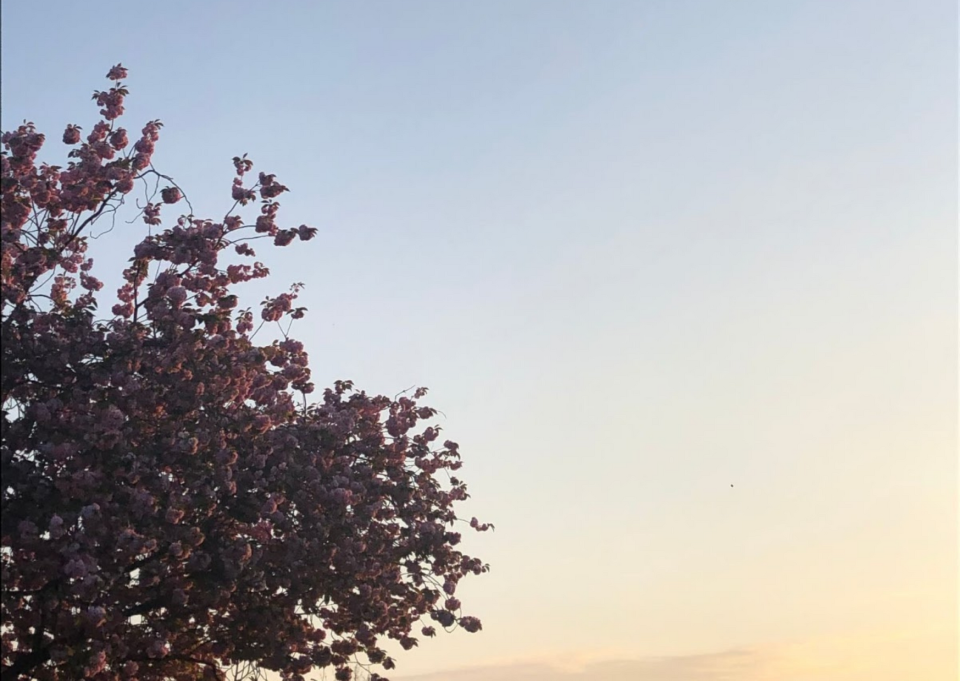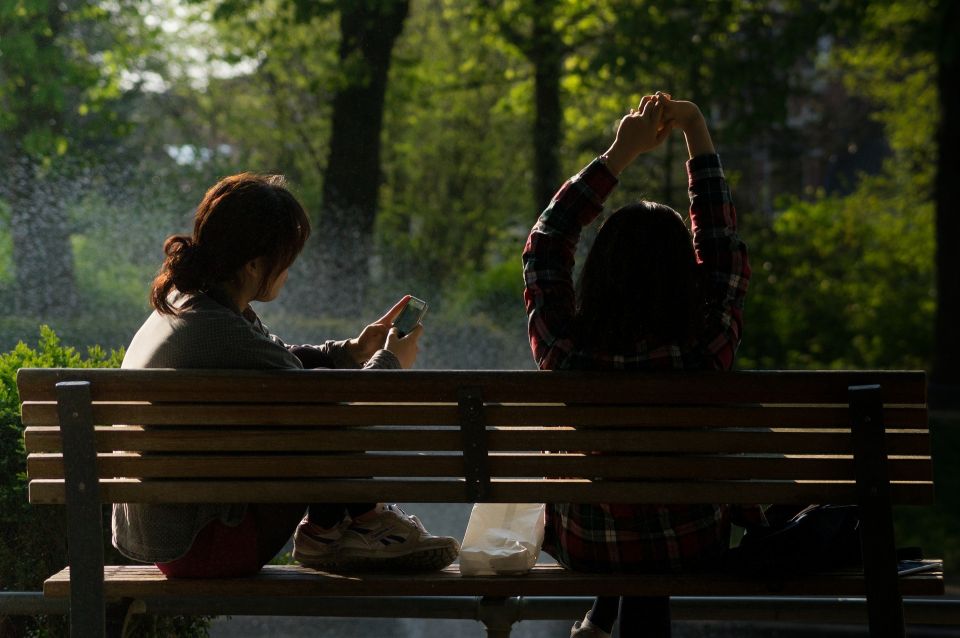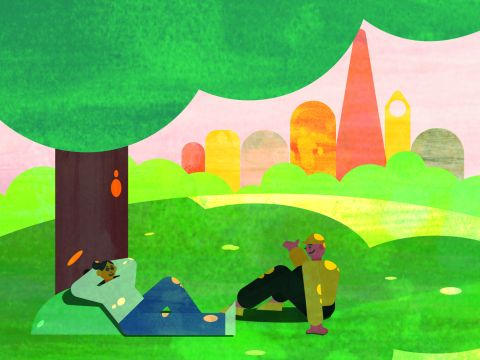How Urban Trees have helped our Mental Health through COVID-19

Urban trees and green spaces have helped improve both our physical and mental health throughout the pandemic, and will continue to do so long into the future.
Written by Chris Mason (Trees for Cities volunteer)
How many walks have you been on this past year? I’m not a betting man, but I’d put money on you and most other urban dwellers having taken more walks over the last 12 months than ever before. After all, it’s one of the few activities we’ve still been able to do outside of our homes. Has it been on your own, with your household or with others (when allowed)? And where have you chosen to take your stroll? Again, I’m not a gambler, but I would bet that many of you have become a little more familiar with your local green spaces, from parks and commons, right down to the trees that line your road.
And no wonder. The pandemic has forced many of us to spend our time in different ways, and with the isolating and claustrophobic nature of lockdown, many of us have taken to walking as a means of escape. Indeed, researchers suggest that getting outside and into green spaces has become a welcome and even necessary activity for our mental wellbeing.
“If the current lock-down has shown us anything, it is how city parks and green networks have become welcome havens for those seeking to get outside to exercise and tap into its mental and physical health benefits.”
Ian Haughton, "Planning the post-pandemic era"

With this in mind, here are the views of a few young urban dwellers about their experiences of walking during lockdown:
Molly, 24, London
Did your relationship with nature change during the pandemic?
“I’ve found that over the pandemic I’ve become a lot more aware of the need to be in more natural surroundings, especially with going on walks. I find there’s more of a quiet and a peace in more natural spaces, which you don’t get in more built up spaces.”
Did you appreciate the greenery?
“I think I’ve noticed particularly this year (2021) the seasonal changes; I’m a lot more observant of the trees changing with the surroundings, for example there’s a Cherry Blossom tree outside my bedroom window, so watching that blossom, and birds and insects coming to it, has been very peaceful to watch. And even going back to work now, the greenery around there I notice and appreciate more.”
Joe, 24, London
Did you go on more walks during lockdown?
“Because I didn’t have loads else to do, it was a breath of fresh air, something different, and it gave me time to think outside of my own bedroom, which I think helped when I felt I was in a rut. Not being confined to such a small space all the time, it was definitely beneficial.”
Did you appreciate the greenery?
“I don’t think I ever equated London to the green spaces that it actually has. When I used to go on walks I’d tend to go more around the inner city, because I always thought that was where all the interesting stuff was. But ever since lockdown I’ve been more drawn to the suburban side of London.”

But it isn’t just during a global pandemic that we need these spaces for our wellbeing. It’s all the time. Studies have shown repeatedly that urban areas with more green space lead to overall better mental and physical health. A 2019 study by the University of Wollongong in Australia found that adults are 31% less likely to develop psychological distress in neighbourhoods with tree canopies of 30% or more. In addition, the study also found that spaces of open grass did not have the same effect, demonstrating that trees have a greater impact than other types of urban greenery.
We have all grown to appreciate our local greenery a little more over the past year, and now it is vital that we not only maintain these spaces, but improve them - and create new ones as well.
Our #HealthierCities campaign aims to do just that, by integrating tree planting further into urban development, ensuring that the mental health benefits of our leafy friends are available to all for a long time to come.
Planting healthier cities across the UK
Join our campaign to build #HealthierCities, and help us transform the mental health of our cities for generations to come.
Get involvedDonate to Trees for Cities and together we can help cities grow into greener, cleaner and healthier places for people to live and work worldwide.
Donate